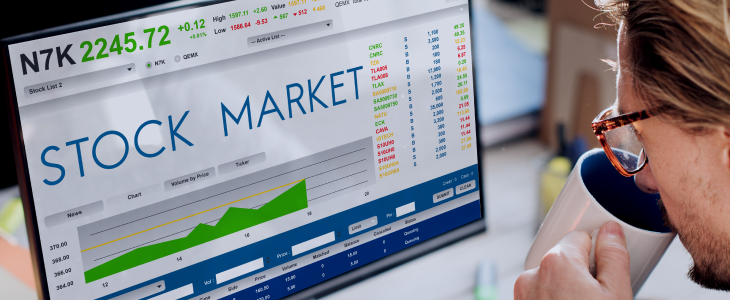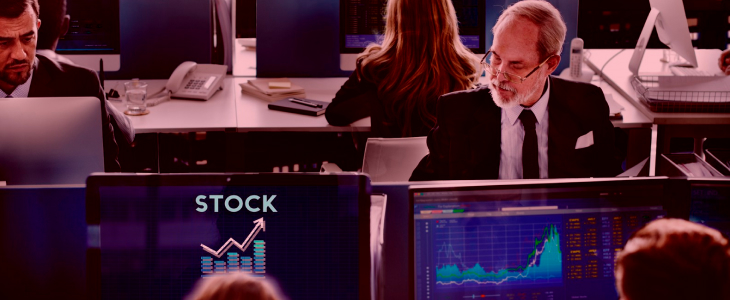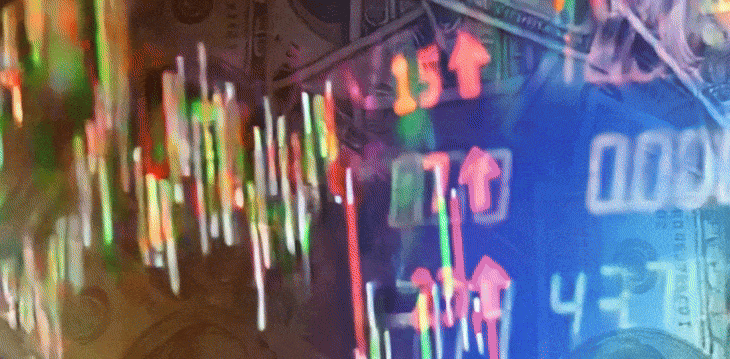The stock market and the forex market are prevailing markets in online trading. These two trading markets possess distinct dangers and chances for traders. In short, forex enables investors to operate at higher risk levels than stock investments.
The upcoming information will examine the features of forex and stocks.
All About Forex and Stocks
Recognizing the basic concepts of forex markets and stock trading is essential before starting the comparison process between leverage and risk elements.
What is Forex?
The forex market is the biggest global financial market for currency exchange that operates around the clock, five days a week. Trader success in this market depends on their ability to predict price changes between different currency pairs, particularly EUR/USD. Transactions within this market take place through decentralized processing on both global platforms, including MetaTrader 4 and brokerage services online.
What is stock trading?

People who participate in stock trading purchase and sell shares belonging to publicly traded organizations. Stock trading happens on specified exchanges, including NASDAQ and the New York Stock Exchange, while forex operates without a designated platform. Market operations in the stock market operate under specific time limits, which differ from the uninhibited forex market.
Difference Between Forex and Stocks
1. Trading Hours
Forex Market: Open 24 hours a day, five days a week.
Stock Market: It is open during specific exchange hours.
2. Liquidity
The Forex Market provides extreme market liquidity because traders conduct trillions of transactions each day.
The liquidity level of stock depends on what kind of stock is being traded.
3. Leverage
Forex trading enables higher leverage to reach up to 1:500 in specific circumstances.
Stock Trading: Lower leverage, usually around 1:2 or 1:5.
4. Volatility and Risk
Forex Trading: More volatile, increasing both potential profit and risk.
Operation during market exchange hours still leads to volatility due to news about specific companies, which impacts stock values.

Forex vs. Stocks: Which Has More Leverage and Risk?
Leverage in Forex vs. Stocks
Both profit potential and trading losses scale up in proportion to capital through the leverage mechanism.
The forex market includes exceptionally high leverage levels. FXcess provides traders with 1:500 leverage, enabling them to manage positions worth $50,000 through only a $100 initial investment. Forex trading allows investors to trade based on short-term price movements at scale through its leveraged system. A slight negative market movement will result in major financial losses due to the available leverage.
The maximum leverage available in stock trading usually extends between 1:2 and 1:5, with few exceptions. With a 1:5 leverage investment, an investor can control stocks worth $5,000 while starting from an initial capital of $1,000. The reduced leverage in stock trading enables traders to minimize their potential loss size yet lower their maximum possible gains.
Imagine two traders, Alex in forex and Sarah in stocks. With 1:500 leverage, Alex executes a transaction worth 50,000 euros using only $100 capital. With a mere 0.5% market movement against him, Alex could witness a complete loss of his whole investment. Sarah purchases $5,000 worth of stock through Apple stock trading but invests only $1,000 of her capital via 1:5 leverage. The reduction in Apple stock value to 5% resulted in a financial loss of just $250 for Sarah.
Risk in Forex vs. Stocks
Multiple significant factors cause forex markets to demonstrate higher volatility levels than other financial markets.
Forex Risks
Market movements of currency pairs can shift drastically by thousands of points within short periods, thus creating profits and sudden trading losses. The market süresi experiences sudden movements when interest rate decisions, economic reports, or political stability issues occur.
Global economic factors such as interest rates, inflation rates, and geopolitical situations have more influence on currency trading than stock price movements. Unforeseen news stories produce turbulent price movements that might eliminate investors who apply high amounts of leverage.
Using leverage improperly is the primary danger in foreign exchange markets. A forex trader who uses excessive leverage runs a risk of complete account loss following moderate price fluctuations.
A scaled-up USD/JPY trader could lose their entire account balance when unexpected central bank decisions depreciate the dollar in overnight trading and result in a forced liquidation through a margin call.
Stock Risks
The financial state of a company directly affects its stock market value through performance indicators. Stock prices fluctuate when companies release their financial reports, unveil new products, or when management mishandles company decisions.
The trading hours of stock markets differ from those of forex. Price gaps occur in the market when unexpected breaking news emerges during trading hours that are not available. Economic downturns and financial crashes, such as the 2008 global economic collapse, cause severe money losses for investors who trade stocks.
Reducing trading leverage accompanies lower risk exposure for stock traders, but it restricts their potential profit margin. Their investment protection strategy takes effect through this preventive measure to prevent losses from the erratic price fluctuations in foreign exchange transactions.
Final Verdict: Your trading method, tolerance for risk, and trading plan should determine your final selection.
Managing Risks of Forex and Stocks
How to Manage Forex Trading Risks
- Investors should select FXcess because it represents a dependable platform. Users access MetaTrader 4 through this platform to receive risk management solutions and superior system capabilities.
- Stop-loss orders should be established because risk management needs defined bandwidth restrictions.
- Your leverage ratio needs to stay within your specified risk tolerance zone.
- Users should analyze market trends and economic indicators using fundamental and technical analysis methods.
- Users can explore FXcess via its demo account because they get the chance to practice while being free from financial risks.
How to Manage Stock Trading Risks
- Investments need to reach farther than one single stock position.
- Investing in stable blue-chip stocks proves to be a wise decision because these stocks show less volatile market movements.
- Investors must maintain a constant watch of market news and earnings reports that the market requires.
- Margin trading must be used only after mastering its dangerous implications.

Kesimpulan
Forex trading enables traders to operate with higher risk potential through increased leverage systems. Metatrader 4, CFD trading, and FXcess can ensure safe operations in the forex market. When seeking abundant flexibility with maximum profit potential, forex is a solid choice, although you should expect to face elevated danger.
FAQs
Is forex more predictable than stocks?
The unpredictability of forex is due to its response to worldwide economic and political developments. The analysis of stocks becomes simpler since it depends on company results.
Can I lose all my money in leveraged trading?
High risk accompanies the use of high leverage. The absence of suitable risk control measures enables complete investment loss.
Are stock options easier than forex?
It depends. To successfully navigate stock options, you need expertise with strike prices and expiration dates, yet forex demands knowledge about currency pairs and global economic elements.
What is the safest forex trading?
The safest setup employs small leverage and robust risk management systems. Using the regulated platform at FXcess provides you with additional safety features.
Is forex easier than indices?
Forex trading appears simpler than index trading because it focuses exclusively on currency pairs instead of complete indexes. Both trading platforms need market analysis together with risk management systems.
DISKLAIMER:
Informasi ini adalah komunikasi pemasaran semata dan tidak boleh dianggap sebagai saran investasi atau rekomendasi investasi.